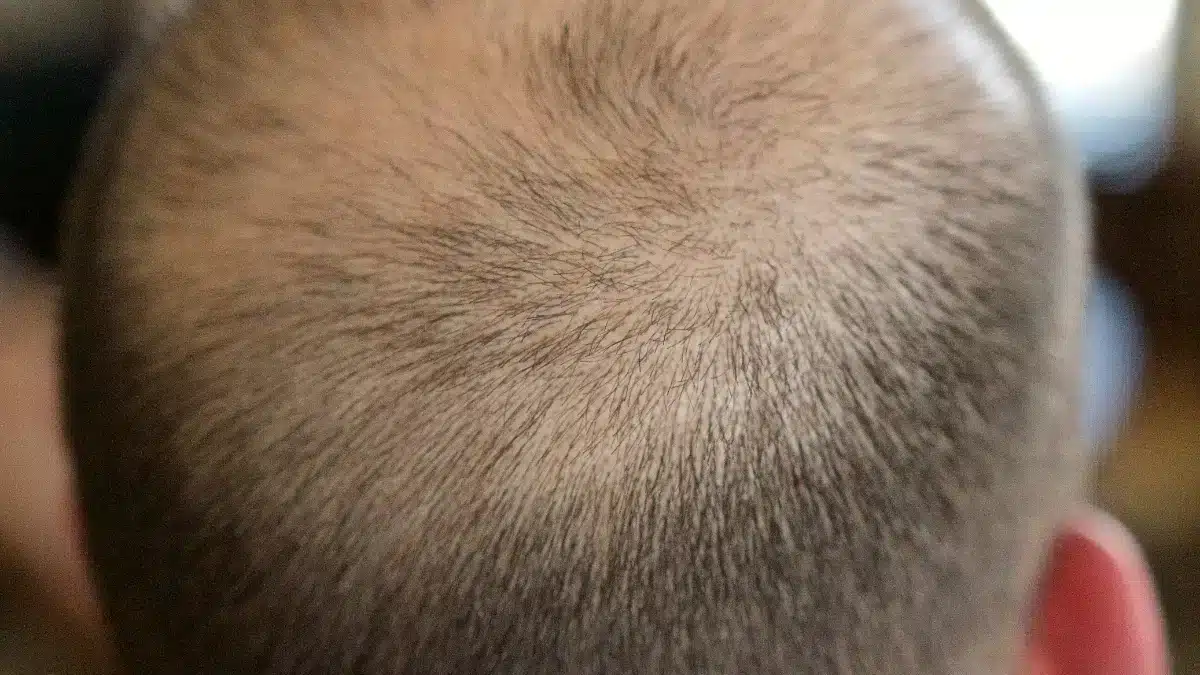High DHT Symptoms: An Essential Hormone with Adverse Effects
Dihydrotestosterone, or DHT, plays an essential role in various physiological processes.
However, when DHT levels become excessive, it can adversely affect both men and women.
Recognizing the symptoms of high DHT is crucial for early detection and management.
In this article, we will explore the symptoms of high DHT and provide insights on recognizing this hormonal imbalance.
Understanding DHT and its Roles
DHT is a potent Androgen hormone derived from Testosterone.
DHT is mainly responsible for the development and maintenance of male characteristics, such as facial and body hair growth, the deepening of the voice, and the development of the male reproductive system.
It is converted from Testosterone with the help of an enzyme called 5-Alpha-Reductase.
What are the high DHT symptoms
Recognizing the symptoms is crucial for understanding the potential imbalances caused by high DHT levels.
The symptoms include.
Hair loss
One of the most common symptoms of high DHT in both men and women is hair loss.
DHT can cause hair follicles to shrink, leading to thinning hair and eventual hair loss.
In men, this often occurs as a receding hairline or a bald patch at the crown.
In women, high DHT levels can cause hair thinning all over the scalp.
Acne and oily skin

Elevated DHT can stimulate sebum production, leading to excessive skin oiliness.
Sebum is an oily substance in the body that combines with lipids or fat molecules to make a protective layer on the surface of the skin.
This can result in frequent acne breakouts, especially in the face, chest, and back.
Hirsutism
In women, high DHT levels might lead to Hirsutism.
It is a condition that refers to excessive hair growth on the face, chest, back, or other areas typically associated with male hair patterns.
Prostate issues
In men, High DHT levels cause prostate enlargement (Benign Prostatic Hyperplasia or BPH).
BPH is characterized by the non-cancerous growth of the prostate gland, which can lead to various urinary symptoms.
It includes symptoms like increased frequency and urgency to urinate.
Men with High DHT levels and BPH also experience weak urine flow, which makes it challenging to empty the bladder fully.
Muscle mass and strength changes
Elevated DHT levels contribute to an increase in muscle mass and strength.
Research published in the National Library of Medicine in 2023 states that an increase in DHT increases force production in fast-contracting muscles and decreases it in slow-contracting ones.
Fast contracting muscles are used for sudden and explosive movement, such as weightlifting, whereas slow contracting muscles are used in long-term endurance sports such as a marathon.
Sleep disturbances
Individuals with high DHT levels experience sleep disturbances such as difficulty falling asleep or disturbed sleep patterns.
Sleep disturbances can also take the form of Insomnia.
Individuals have trouble initiating or maintaining sleep or may experience fragmented sleep and frequent awakenings throughout the night.
These sleep disturbances can lead to feelings of fatigue, daytime sleepiness, and impaired overall well-being.
When to see a doctor

Knowing when to see a doctor is crucial in addressing potential health concerns related to high DHT levels.
Because every individual is unique, the impact of increased DHT levels can vary from person to person.
If you have concerns specific to your health, such as significant hair loss, severe acne, or noticeable changes in libido, it is recommended to seek advice from a healthcare professional.
Conclusion
If you experience persistent symptoms and notice significant changes in your emotional well-being or libido, or have concerns about prostate health.
It is advisable to consult with a healthcare professional.
They will be able to evaluate your symptoms, provide an accurate diagnosis, and recommend appropriate treatment or further investigations if necessary.
By seeking medical advice, individuals can better understand their hormonal imbalances and work towards optimizing their well-being.
Early detection and appropriate management are vital to addressing High DHT levels and minimizing their impact on your health and quality of life.
Frequently Asked Questions
Is High DHT good or bad?
What triggers High DHT?
How can I lower DHT levels naturally?
Are there medical treatments available to lower DHT levels?
Are there any health risks associated with high DHT levels?
WowRx uses only high-quality sources while writing our articles. Please read our content information policy to know more about how we keep our content reliable and trustworthy.






